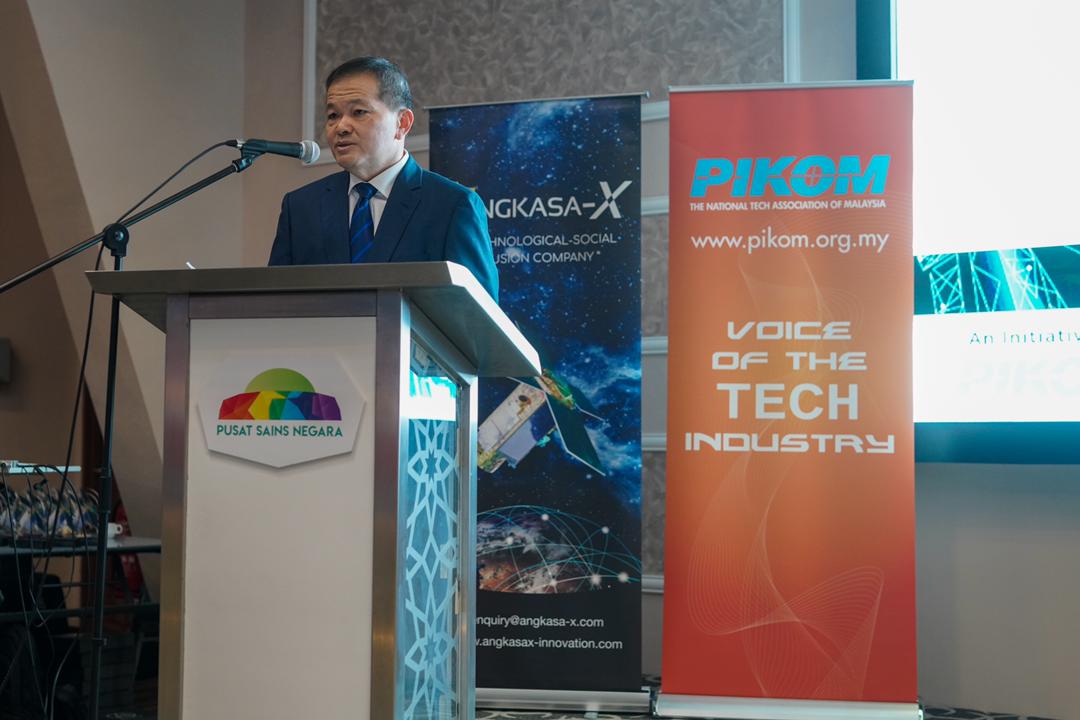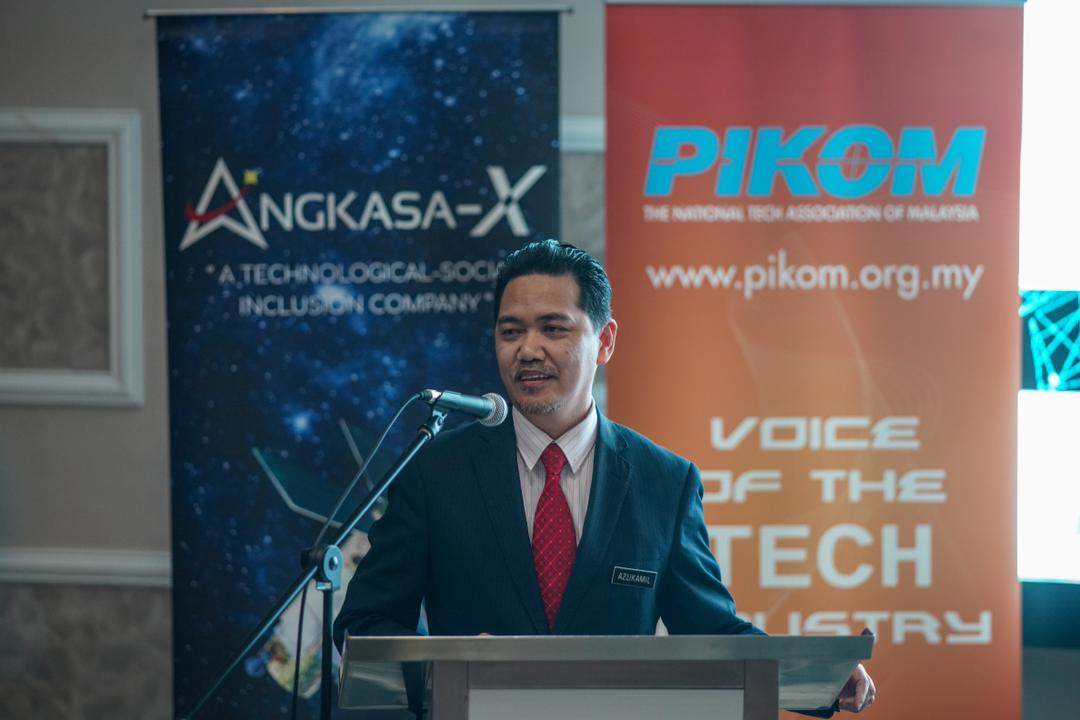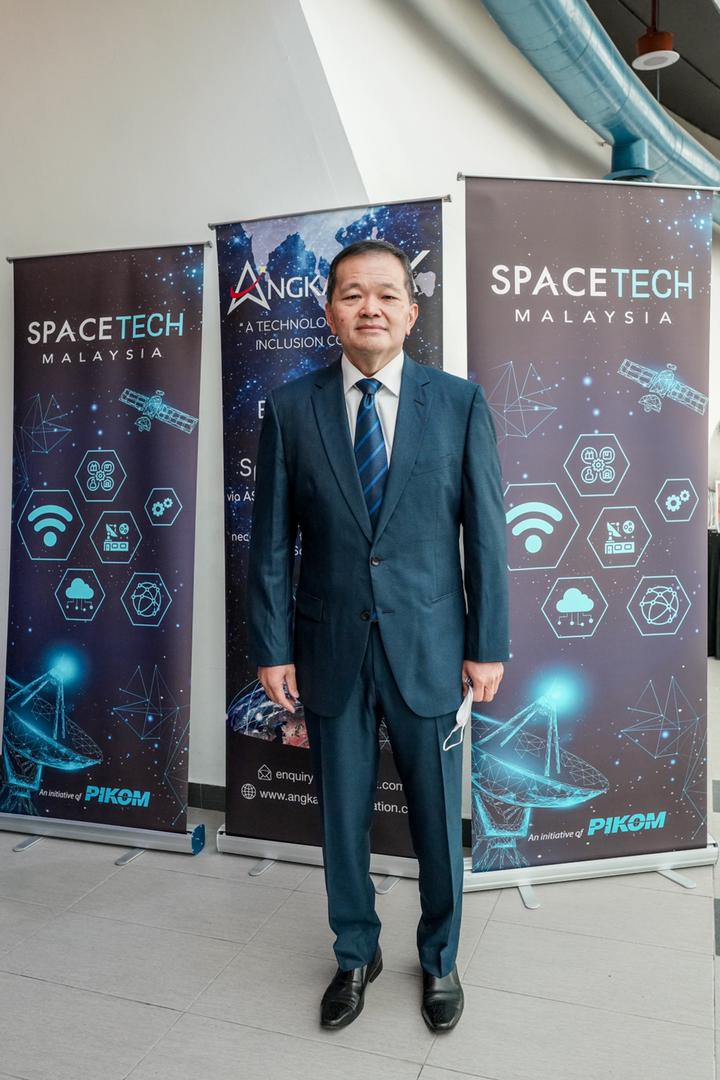Petaling Jaya, 15 December 2021: PIKOM Chairman Dr Sean Seah sees potential for Malaysia to have its SpaceTech Ecosystem, envisioning it to be the first for the ASEAN region.
At the launch of SpaceTech Initiative by PIKOM today, Dr Sean Seah highlighted, “We have been seeing pockets of interest in SpaceTech here and there over the past couple of years, and so, why are we not collaborating and develop the ecosystem together? I believe it is time for us to be unified, invite all the like-minded SpaceTech players in the country and across the world, to come and take part in this mutual goal together.”

Malaysia has been at the forefront of space technology since the early 2000s with the setting up of specialized agencies to spearhead the nascent industry then. That has enabled Malaysia to develop necessary technical expertise and talents for the SpaceTech ecosystem development. With the boom in private SpaceTech in recent years, this positions Malaysia in good stead for the next phase of growth.
The SpaceTech landscape has transformed from single proprietary system to integrated multi-component systems much like the system integration for computer-systems in the tech industry. The computer systems embedding Artificial Intelligence, machine learning, software and robotics are now Frontier Technologies in the SpaceTech landscape. The same with Communications Technology, Cloud Technology, Navigation and Mapping supported by industries such as Financial, Consulting, Training, Research & Education and HR. The application-services of space technology are wide ranging from internet connectivity, IoT, navigational tracking, disaster management, resource management, governance, meteorology, defence, and security.
It is estimated that the global SpaceTech economy is forecasted to grow to US$10T by 2030 from US$ 380 billion in 2020. The space-related investment funding for Asia-Pacific at US$41.7B is ranked second after Northern America and is confidently gaining momentum. The rising private sector interest makes the SpaceTech industry an extremely prospective and lucrative sector for investors. The rapid development of space exploration technologies attracts countless investors from the whole world.
Malaysia has been involved in the SpaceTech since the launching of satellites MeaSAT 1 and MeaSAT 2 (1996), TiungSAT-1 (2000), MeaSAT 3 (2006) and RazakSat (2009). RazakSat is a “Designed in Malaysia” Earth-Observation Low-Earth-Orbit (LEO) satellite that was launched into near-equatorial orbit in 2009 by SpaceX’s Falcon-1 rocket.
At the same time, with the estimated growth potential of US$10 trillion by 2030, the ecosystem players can converge and collaborate with space-related players. The industry needs all parties to work together cohesively to build the SpaceTech ecosystem in Malaysia,” continues Dr Seah.
Malaysia is an active member at the International Telecommunications Union (ITU) and has been championing equitable access on satellite orbit rights through public and private sector participation. PIKOM currently has three members (AngkasaX, Celcom and MeaSAT) that have been admitted as “ITU-R member” of the ITU, possess the eligibility to apply and secure orbital slots and radio spectrum to launch their satellites. ITU is a specialised agency of the United Nations which manages space telecommunications.

PIKOM believes that it should drive the SpaceTech development forward as the association has over 1000 corporate members with the capability, technology and talent to work with the industry, government and academia.
The launch of the SpaceTech Initiative was also attended by Malaysia Space Agency (MYSA), Malaysian Investment Development Authority (MIDA), Malaysia Digital Economy Corporation (MDEC), Malaysian Communications and Multimedia Commission (MCMC), universities (USM, UITM and UPM) and dozens of tech-companies that are related to space technology and satellite communications. The strategic directions and programs of the initiative will be aligned closely to the pillars of the National Space Policy 2030 (DAN2030) to contribute at least RM3.2 billion or 0.3 per cent to the Gross Domestic Product (GDP) by 2030 and expected to create 5,000 new jobs.
“PIKOM will become the central voice of the SpaceTech industry based on its expertise in the technology sectors and system-integration expertise which are the backdone of the SpaceTech and satellite engineering. Our members are very excited to see the potential collaboration and see through this growth for Malaysia,” concluded Dr Seah.

About PIKOM
PIKOM, THE NATIONAL TECH ASSOCIATION OF MALAYSIA, is the association representing the technology industry in Malaysia. Its membership currently stands at more than 1,000 active companies involved in a whole spectrum of tech products and services, and which command 80% of the total TECH business in Malaysia.
There are 6 Chapters under PIKOM: OM; CIO; Cybersecurity; E-Commerce: Venture Investment and Women in Tech. These chapters help improve and drive the business climate for all member companies, together with promoting industry growth in line with national aspirations.
As the Voice of the Tech Industry, PIKOM embraces the task of growing the size and capabilities of the tech industry in Malaysia by creating opportunities for its members as well as all Malaysians to capture the benefits offered by advances in technology. For more information, visit www.pikom.org.my .
This content is provided by PIKOM.
Interested in having your announcements on Malaysiakini? Contact the announcements team at [email protected] or whatsapp on +60 17-323 0707 for urgent matters.

